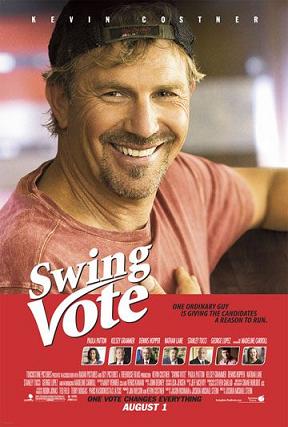“Let’s do some good!” Eliot Ness shouts as he and a platoon of Chicago cops raid what they believe is a bootlegger’s warehouse.
That line right there tells you everything that you need to know about the 1987 film, The Untouchables. In real life, Eliot Ness was known to be an honest member of law enforcement (which did make him a bit of a rarity in 1920s Chicago) but he was also considered to be something of a self-promoter, someone who tried to leverage his momentary fame into an unsuccessful political career. In the 50s, after Ness had lost most of his money due to a series of bad investments and his own alcoholism, Ness wrote a book about his efforts to take down Al Capone in Chicago. That book was called The Untouchables and though Ness died of a heart attack shortly before it was published, it still proved popular enough to not only rehabilitate Ness’s heroic image but also to inspire both a television series and the movie that I’m currently reviewing.
None of that is to say that Ness didn’t play a role in Al Capone’s downfall. He did, though it’s since been argued that Ness had little to do with actual tax evasion case that led to Capone going to prison. It’s just that, in real life, Eliot Ness was a complicated human being, one who had his flaws. In The Untouchables, Kevin Costner plays him as a beacon of midwestern integrity, a Gary Cooper-type who has found himself in the very corrupt city of Chicago in the very corrupt decade of the 1920s. The film version of Eliot Ness has no flaws, beyond his naive belief that everyone is as determined to “do some good” as he is.
So, The Untouchables may not be historically accurate but it’s still an entertaining film. It’s less concerned with the reality of Eliot Ness’s life and more about the mythology that has risen up around the roaring 20s. Everything about the film is big and operatic. In the role of Al Capone, Robert De Niro sneers through every scene with the self-satisfaction of a tyrant looking over the kingdom that he’s just conquered. While Costner’s Ness tells everyone to do some good, De Niro’s Capone uses a baseball bat to keep his underlings in line. He goes to the opera and cries until he’s told that one of Ness’s men has been killed. Then a big grin spreads out across his face. It’s not exactly a subtle performance but then again, The Untouchables is not exactly a subtle movie. It’s not designed to be a film that makes you think about whether or not prohibition was a good law. Instead, everything is bigger-than-life. It’s a film that takes place in a dream world that appears to have sprung from mix of old movies and American mythology.
In real life, Ness had ten agents working under him. They were all selected because they were considered to be honest lawmen and they were nicknamed The Untouchables after it was announced to the press that Ness had refused a bribe from one of Capone’s men. In the film, Ness only has three men working underneath him and they’re all recognizable types. Sean Connery won an Oscar for playing Jmmy Malone, the crusty old beat cop who teaches Ness about the Chicago Way. A young and incredibly hot Andy Garcia plays George Stone, the youngest of the Untouchables. Best of all is Charles Martin Smith, cast as Oscar Wallace, a mild-mannered accountant who first suggests that Capone must be cheating on his taxes. There’s a great scene in which the Untouchables intercept a liquor shipment on the Canadian border, all while riding horses. Sitting on the back of his galloping horse and trying not to fall off, both Oscar Wallace and the actor playing him appear to be having the time of their lives. For Oscar (and probably for much of the audience), it’s a fantasy come to life, a chance to “do some good.”
The Untouchables was directed by Brian DePalma and his stylish approach to the material is perfect for the film’s story. DePalma fills the film with references to other movies, some from the gangster genre and some not. (In one of the film’s most famous sequence, DePalma reimagines Battleship Potemkin‘s massacre on The Odessa Steps as a shoot-out between Eliot Ness and Capone’s men.) DePalma’s kinetic style reminds us that The Untouchables is less about history and more about how we imagine history. In reality, Capone was succeeded by Frank Nitti and The Chicago Outfit continued to thrive even in Capone’s absence. In the film, Nitti (played by Billy Drago) brags about killing one of the Untouchables and, as a result, is tossed off the roof of a courthouse by Eliot Ness. It’s not historically accurate but it makes for a crowd-pleasing scene.
Big, operatic, and always entertaining, The Untouchables is an offer that you can’t refuse.
Previous Offers You Can’t (or Can) Refuse:
- The Public Enemy
- Scarface (1932)
- The Purple Gang
- The Gang That Could’t Shoot Straight
- The Happening
- King of the Roaring Twenties: The Story of Arnold Rothstein
- The Roaring Twenties
- Force of Evil
- Rob the Mob
- Gambling House
- Race Street
- Racket Girls
- Hoffa
- Contraband
- Bugsy Malone
- Love Me or Leave Me
- Murder, Inc.
- The St. Valentine’s Day Massacre
- Scarface (1983)




 Once upon a time, there were two movies about the legendary Western lawman (or outlaw, depending on who is telling the story) Wyatt Earp. One came out in 1993 and the other came out in 1994.
Once upon a time, there were two movies about the legendary Western lawman (or outlaw, depending on who is telling the story) Wyatt Earp. One came out in 1993 and the other came out in 1994.






